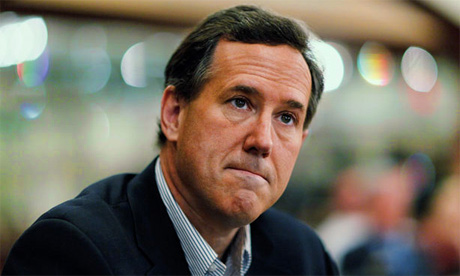Rick Santorum was, in his own words, a “nominal Catholic” when he met Karen Garver, a neonatal nurse and law student, in 1988. As they made plans to marry and he decided to enter politics, she sent him to her father for advice.
Dr. Kenneth L. Garver was a Pittsburgh pediatrician who specialized in medical genetics. The patriarch of a large Roman Catholic family, he had treated patients considering abortion but was strongly opposed to it.
“We sat across the table and the whole evening we talked about this issue,” Mr. Santorum told an anti-abortion group last October. He left, he said, convinced “that there was only one place to be, from the standpoint of science as well as from the standpoint of faith.”
For Mr. Santorum, a Republican candidate for president, that conversation was an early step on a path into a deeply conservative Catholic culture that has profoundly influenced his life as a husband, father and politician. Over the past two decades, he has undergone a religious transformation that is now spurring a national conversation about faith in the public sphere.
On the campaign trail, he has attacked President Obama for “phony theology,” warned of the “dangers of contraceptives” and rejected John F. Kennedy’s call for strict separation of church and state. His bold expressions of faith could affect his support in this week’s Super Tuesday nominating contests, possibly helping with conservative Christians, especially in the South, but scaring off voters uncomfortable mixing so much religion in politics.
Central to Mr. Santorum’s spiritual life is his wife, whom he calls “the rock which I stand upon.” Before marrying, the couple decided to recommit themselves to their Catholic faith — a turnabout for Karen Santorum, who had been romantically involved with a well-known abortion provider in Pittsburgh and had openly supported abortion rights, according to several people who knew her then.
Continue reading: From nominal Catholic to clarion of faith
Image: Esquire
